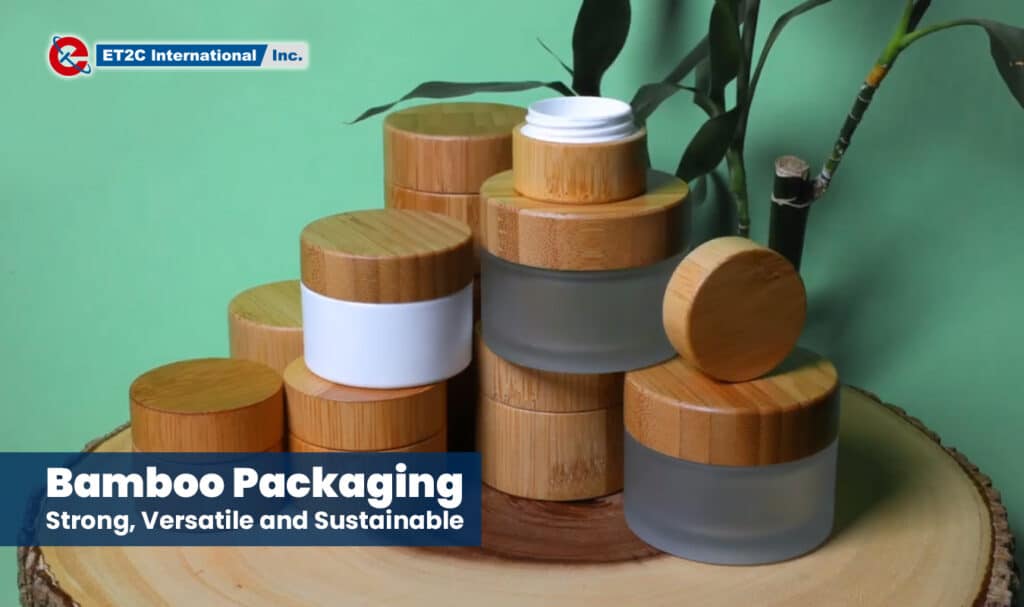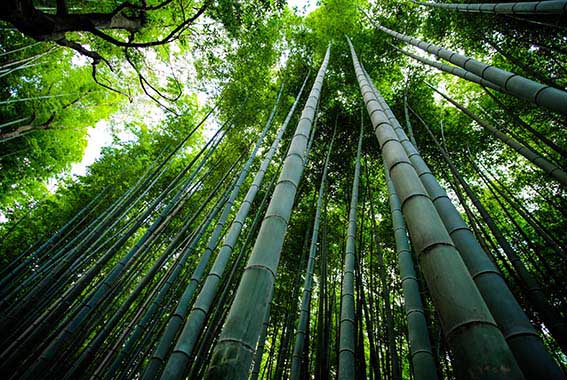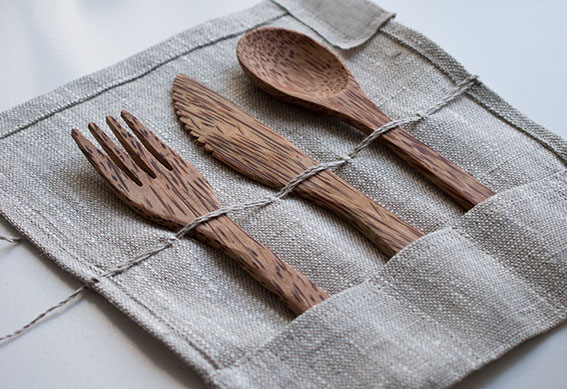
Bamboo packaging is a great sustainable option and has become a staple choice in the modern, eco-conscious world.
The Rise of Sustainable Packaging
Sustainable packaging is becoming an important topic for companies all over the world. The primary reason is that it is becoming important to the Consumer. In fact, recently IBM released a study on global consumer trends — revealing that the importance of brand purpose now surpasses cost and convenience for shoppers. This means that Consumers are now prioritizing goods that are sustainable, transparent and aligned with their core values when making these purchase decisions.
A Challenging Choice for Businesses
The challenge for all businesses is to develop packaging which meets the objective of sustainability, but also performs the tasks for which the packaging is required. So not only should it keep the product safe but also respect the environment. Let’s think about the origin of materials, recyclability of the final product, not to mention ethics and compliance factors. In addition, it should stay within the budgetary reach of manufacturers, distributors and consumers. In a nutshell, it should still be able to meet any company’s market requirements in terms of cost, performance and safety.

Bamboo Packaging
Because of these new market trends, manufacturers around the world are beginning to implement eco-friendly materials in their manufacturing processes. Amongst several options, they increasingly choose bamboo as the material of choice because it has is durable, can be used in different forms and has less environmental impact.
We already explained the reasons why Bamboo is a great material in the Furniture industry. But why is it so popular now also in packaging?
The Great Features of Bamboo
1. Locally available
There are over 1,000 different species of bamboo that grow in many different parts of the world. Consequentially, this allows manufacturers to locally source bamboo for their packaging and reduces our packaging carbon footprint.
2. Low-Cost
Bamboo cultivation itself does not require a lot of land, resources, or time. This means that it’s much more easily accessible for manufacturers.
Also, bamboo is not a tree, but a plant. Growing and cultivating bamboo requires less land and resources than other materials. Since bamboo grows around the world, it’s much easier to access. Alternatively, companies can source bamboo in many countries around the world and they can also recycle the material. This reduces the impact on agriculture whilst reducing production and transportation costs.
In addition, this plant does not require pesticides, irrigation, or replanting to achieve this growth. In fact, in a crop-friendly harvest, it does not have to be replanted afterward. That means lower impact and higher sustainability.
3. Biodegradable and Compostable
Bamboo fiber is a natural cellulose fiber and it can totally biodegrade in the soil in the presence of micro-organisms and sunshine. The decomposition process does not pollute the environment. Depending on the type of composting, the bamboo handle can take from 3 years to 4 months to compost.
4. High Renewability
Bamboo has a rapid growth rate, making it an abundant resource easily.
In fact, bamboo grasses are the fastest growing woody plants in the world. They can grow up to almost 61 cm (24 inches) per day. The bamboo can be harvested after just three to seven days – much faster than hardwood. Therefore, bamboo is highly renewable and an ideal alternative to foams, corrugated board, and molded paper fiber materials.
5. Environmental Friendly
Bamboo plants promote soil health. The deep root systems protect the soil from erosion. In addition, bamboo is naturally pest-resistant and can be grown without any chemical fertilisers or pesticides.
Moreover, bamboo absorbs 2x more carbon dioxide than trees, which is why they are known to act as carbon sinks. It also generates a vast amount of oxygen, totaling up to 30% more than most plants and trees.
6. Durable and Sturdy
Bamboo has a higher compressive strength than wood, brick, and concrete. In addition, many compare it often to steel for its rigid strength. In fact, like steel, bamboo can withstand heavy loads and can be stretched and pulled enormously. This material can also withstand heat up to 400 degrees Fahrenheit.
Importantly, bamboo has an astounding strength and lifespan whilst remaining light and easy to carry around.
7. Anti-bacterial
Bamboo fibres are naturally anti-bacterial without needing any toxic chemical treatments, all thanks to its substance called ‘bamboo kun’.
Bamboo kun is found in bamboo fibre and is an antimicrobial bio-agent which gives bamboo its natural antibacterial properties. This prevents bacteria and microbes from growing on bamboo products making it the perfect plant for naturally hygienic products such as bamboo straws and cutlery, keeping them sterile and fresh.

Advantages of Bamboo Packaging for Companies
Certainly, bamboo is a great material because of it multiple characteristics. But why should a company opt for bamboo packaging and how would it benefit from it?
Versatility & Innovation
Bamboo has quickly become a significant alternative in the sustainable materials market. It’s an eco-friendly replacement for metal, plastic, hardwood, paper, and cotton. This material has made it into nearly every corner of our lives from being used in toothbrushes and fabrics to toilet paper and everything in between. It offers a high level of durability and when used as a material for packaging, it keeps this important feature of with versatility. For this reason, you can use as packaging for many industries, like apparel, food, cosmetics and more. Moreover, designers are truly innovating the packaging sector by experimenting new great design adopting this material.
Sustainability
With the increased awareness and concern over climate change, consumers and companies are constantly searching for environmentally responsible options for their everyday needs. Consumers want to support companies that are prioritizing the earth’s health, and bamboo packaging is a sustainable option.
From a positioning perspective, by incorporating eco-friendly practices into your business operations, you will be able to engage more environmentally conscious customers and this will help you widen your customer base. Sharing the same values as your customer will definitely allow you to strengthen your relationship.
Price
Bamboo is essentially a ‘weed’ and to that extent is abundant across many countries – particularly within Asia. One of the challenges of looking for sustainable alternatives is that for some materials, the costs can be prohibitive, possibly outweighing the benefit should the consumer not want to pay the additional cost.
As sustainable materials go, Bamboo is well priced given the abundant supplies, and is therefore an alternative packaging material that companies are working with.
Eco-friendly packaging solutions from O.Berk Company
Are You Looking for Sustainable Packaging?
At ET2C we care deeply about the environment and are doing what we can to understand more about the broader sustainable packaging market. We are working hard to understand what is best suited to our clients. It is a complex environment that requires specific market, product and even segment knowledge to get both the right option at a consumer level but to also be relevant to the regulatory environment of a specific market. Wasting less and being mindful of the amount of materials used in packaging is a good start.
For all your packaging queries, please contact us at contact@et2cint.com
Cover photo credit: O.Berk Company

